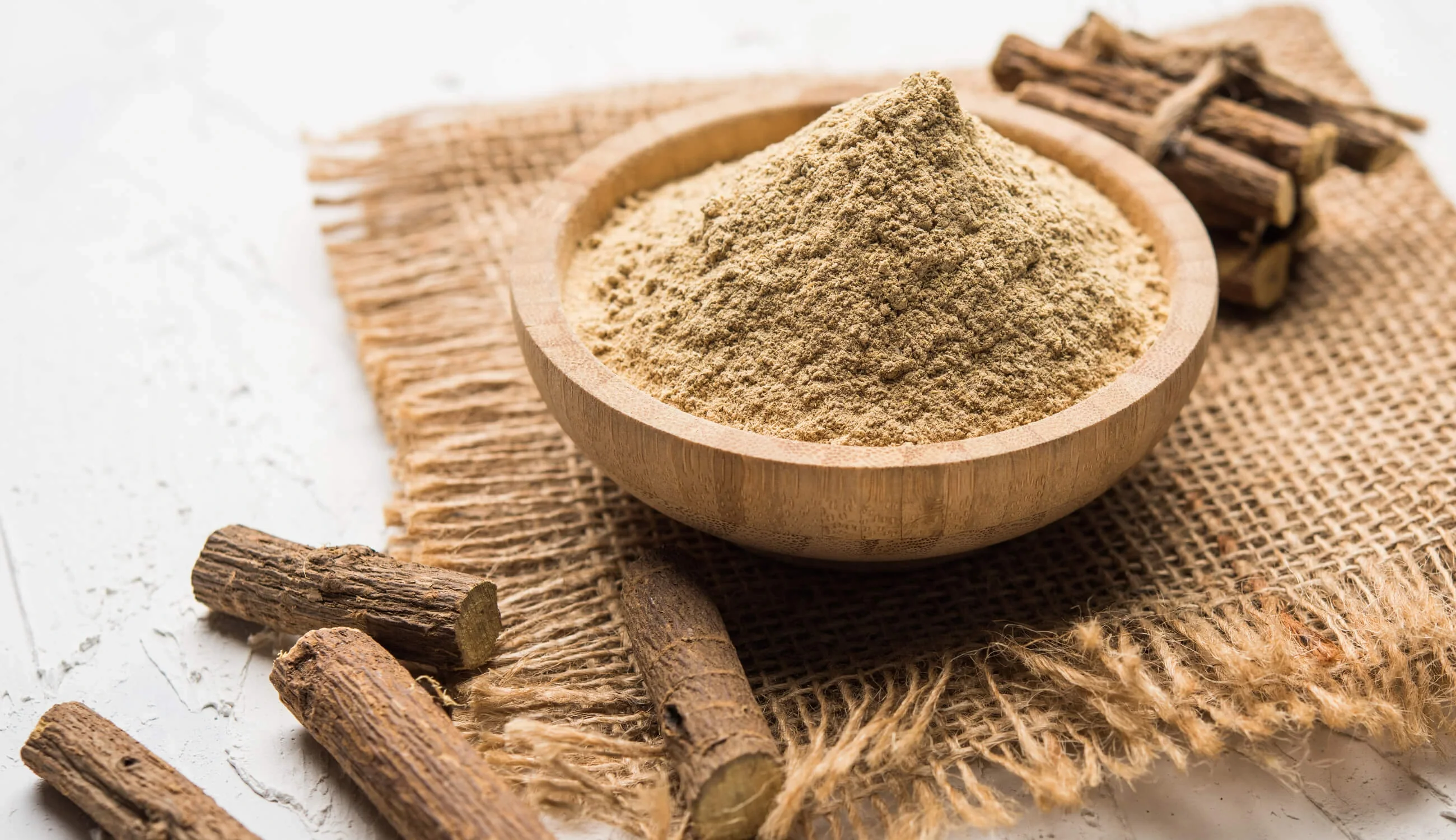- 0086-571-85302990
- sales@greenskybio.com
Glycyrrhizin in Licorice Root: A Promising Ally Against Breast Cancer*
2025-06-24
 A compound found in licorice root, known as glycyrrhizin, is showing significant potential in the fight against breast cancer by targeting genes associated with tumor growth. Multiple studies have indicated that glycyrrhizin's anticancer activities include initiating apoptosis, decreasing multidrug resistance, hindering metastasis, and suppressing angiogenesis.
A compound found in licorice root, known as glycyrrhizin, is showing significant potential in the fight against breast cancer by targeting genes associated with tumor growth. Multiple studies have indicated that glycyrrhizin's anticancer activities include initiating apoptosis, decreasing multidrug resistance, hindering metastasis, and suppressing angiogenesis.
Through bioinformatics and molecular simulations, researchers have discovered that glycyrrhizin possesses a strong binding affinity for certain cancer-related proteins. Although these computer models offer promising insights, laboratory experiments and clinical trials are necessary to verify its effectiveness in humans. Glycyrrhizin underscores the potential of plant-based compounds as future cancer treatments.
A groundbreaking study published in the Journal of Biomolecular Structure and Dynamics highlights how this natural compound might serve as a powerful weapon against breast cancer. Glycyrrhizin, the sweet component in licorice root, has been used traditionally for various ailments, and new research suggests its promise as a natural cancer-fighting agent.
Utilizing advanced computer modeling, Iranian researchers have mapped out glycyrrhizin's interactions with breast cancer cells, revealing promising results. The study explored how glycyrrhizin targets and interacts with the protein products of breast cancer genes. Among the ten breast cancer-related genes examined, glycyrrhizin was found to have the strongest binding affinity with three: POLK, TBXAS1, and ADRA1A. These genes are active in types of breast cancer, including breast carcinoma, malignant neoplasm of the breast, and triple-negative breast neoplasms.
The study noted that the protein products of these targeted genes are associated with breast cancer throughout various tumor growth stages. By binding to and influencing these targets, glycyrrhizin effectively controls breast cancer growth and survival. Molecular dynamics simulation further showed that binding to ADRA1A triggered pathways with the highest likelihood of impeding cancer progression.
Various studies indicate glycyrrhizin subdues cancer cells through mechanisms such as:
- Increasing reactive oxygen species to induce apoptosis, or programmed cell death.
- Regulating nitric oxide production to lower multidrug resistance.
- Enhancing microRNA expression to inhibit invasion and metastasis.
- Suppressing angiogenesis, thereby cutting off cancer cells' nutrient supply.
While these findings are promising, researchers caution that this is a preliminary step. Computer models are useful in predicting a compound’s behavior, but real-world evidence is essential. The next steps involve laboratory experiments and clinical trials to confirm whether the compound can fulfill its therapeutic promise.
This study is part of a broader trend examining plant-based compounds for cancer treatment. Nature is brimming with disease-fighting molecules, from turmeric to mushrooms, and science is beginning to unlock their potential. For now, glycyrrhizin provides a hopeful glimpse into a future where natural remedies and advanced technology collaborate to combat disease.
- ▶ Hesperidin
- ▶ Citrus Bioflavonoids
- ▶ Plant Extract
- ▶ lycopene
- ▶ Diosmin
- ▶ Grape seed extract
- ▶ Sea buckthorn Juice Powder
- ▶ Fruit Juice Powder
- ▶ Hops Extract
- ▶ Artichoke Extract
- ▶ Mushroom extract
- ▶ Astaxanthin
- ▶ Green Tea Extract
- ▶ Curcumin
- ▶ Horse Chestnut Extract
- ▶ Other Product
- ▶ Boswellia Serrata Extract
- ▶ Resveratrol
- ▶ Marigold Extract
- ▶ Grape Leaf Extract
- ▶ New Product
- ▶ Aminolevulinic acid
- ▶ Cranberry Extract
- ▶ Red Yeast Rice
- ▶ Red Wine Extract
-
Lemon Extract
2025-06-24
-
Hawthorn Extract
2025-06-24
-
Green Tea Extract
2025-06-24
-
Boswellia Serrata Extract
2025-06-24
-
White mustard seed extract
2025-06-24
-
Genistein
2025-06-24
-
Purple Sweet Potato Extract
2025-06-24
-
Resveratrol extract
2025-06-24
-
Pueraria Lobata Extract
2025-06-24
-
Giant Knotweed Extract
2025-06-24





















